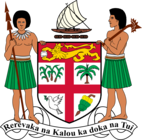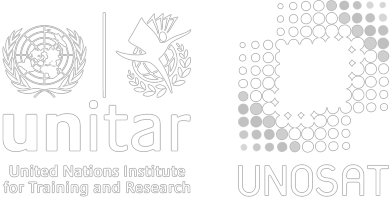Climate Change Division - GIS Platform
The Government of Fiji has set ambitious plans to support its most climate-impacted communities.
Geospatial applications as decision-support tools is helping prioritised pipeline projects with the
evidence-based rationale it needs to pursue innovative financing solutions.
This platform provides a collection of decision support tools, including maps, apps,
and data layers supporting Fiji's climate change streams.
This initiative is part of a long-term, dedicated and nationally embedded support with the Climate
Change Division, mapping projects and activities in collaboration with implementing ministries.
Geospatial Applications
A series of web-map products and decision support tools supporting climate actions in Fiji

Fiji Rural Electrification Fund (FREF)
The App display FREF sites and Department of Energy's off-grid power distribution. FREF Phase 1 completed with 47 households on Vio electrified through Leonardo DiCaprio Foundation, Phase 2a is on-going with UK Government support.
EXPLORE

Decarbonisation of Public Transport / Electric Buses (E-Bus)
The app display proposed -ebus routes and locations of EV charging stations. The E-Bus project is an electric Bus Shuttle Pilot Programme earmarked for the Suva-Nausori corridor (serving potentially up to 100 buses).
Disclaimer: Preliminary routes are for reference only, and will be updated.
EXPLORE

Planned Relocation of at-risk communities in Fiji
This app show communities that have been relocated due to climate induced hazards and communities that are currently scoped for relocation or alternative adaptation interventions.
EXPLORE

Climate Change Projection
Climate Change projections by CSIRO 2014, mapped across the Fiji Group linked to historical weather station averages. The data was shared by SPREP's PEBACC Project and Fiji Met Services.
EXPLORE

Adaptation Projects Tracker
This app tracks adaptation projects supported by CCD, highlighting past and on-going initiatives including on-going work on Nature-based Seawalls with Ministry of Waterways.
EXPLORE

Nature-based Seawalls
Nature-based Seawalls implemented by the Ministry of Waterways.
EXPLORE

Fiji Climate Change Portal NDA
The Fiji Climate Change Portal (FCCP) and National Designated Authority (NDA) Portal is the central information hub for climate change and international cooperation
EXPLORE

GRAF Adaptation Survey of at-risk communities
Funded by UNDRR-GRAF, this web-application present results of the Adaptation Survey conducted by CCD and NDMO officers with UNOSAT and UNDRR officials, on 17 at-risk communities preliminary scoped for planned relocation to identify other potentially viable adaptation options where possible
EXPLORE
Geospatial Tools and Services from UNOSAT
Through a long-standing partnership between the Climate Change Division and UNOSAT, the following tools were developed to support evidence-based decision-making across critical sectors implementing Climate Change and Disaster Risk Reduction activities in Fiji. This collaboration enables innovative tools that enhance design and delivery of learning solutions that equip stakeholders and beneficiaries with targeted technical skills, to apply geospatial information technologies in addressing sectoral needs, including application of scientific information and multi layered spatial datasets in thematic decision support products.

DRR Decision Support System
Supporting decision-makers in answering critical questions related to disaster risks and climate change resilience.
EXPLORE

Food Security (MoA)
The open app is designed to provide farmers and agricultural communities with MoA information on crop suitability potential across the two main islands.
EXPLORE

Flood Susceptibility
The map illustrates the use of NASADEM for calculation of the height above the nearest drainage (HAND) from a digital elevation model.
EXPLORE

Colo-i-Suva Forest Reserve
The interactive 3D application illustrates deforestation in Colo-i-Suva forest reserve park in Fiji between 2014 to 2019.
EXPLORE

Sea-Level Rise Impact Mapping App
This interactive webapp can measure impact of different sea level rise scenarios on housing and relevant infrastructure.
EXPLORE

Landslide Susceptibility
Demo landslide susceptibility map using 6 factors. The mapping is generated applying 3 methodologies which are Linear Regression, Random Forest Regression, and Weighted overlay model.
EXPLORE

Earthquake Induced Landslide Susceptibility Mapping
A landslide susceptibility map was prepared using the geological classes and slope steepness to support delineating future landslide susceptible areas
EXPLORE

Mapping Mangrove Forests
This map illustrates mangrove areas that are extracted using Sentinel-2 multispectral satellite imagery acquired in 2020.
EXPLORE

Open Data Cube
Request on-demand products through the Map Explorer app. Coming soon, a number of annual routine products will be made available.
EXPLORE


